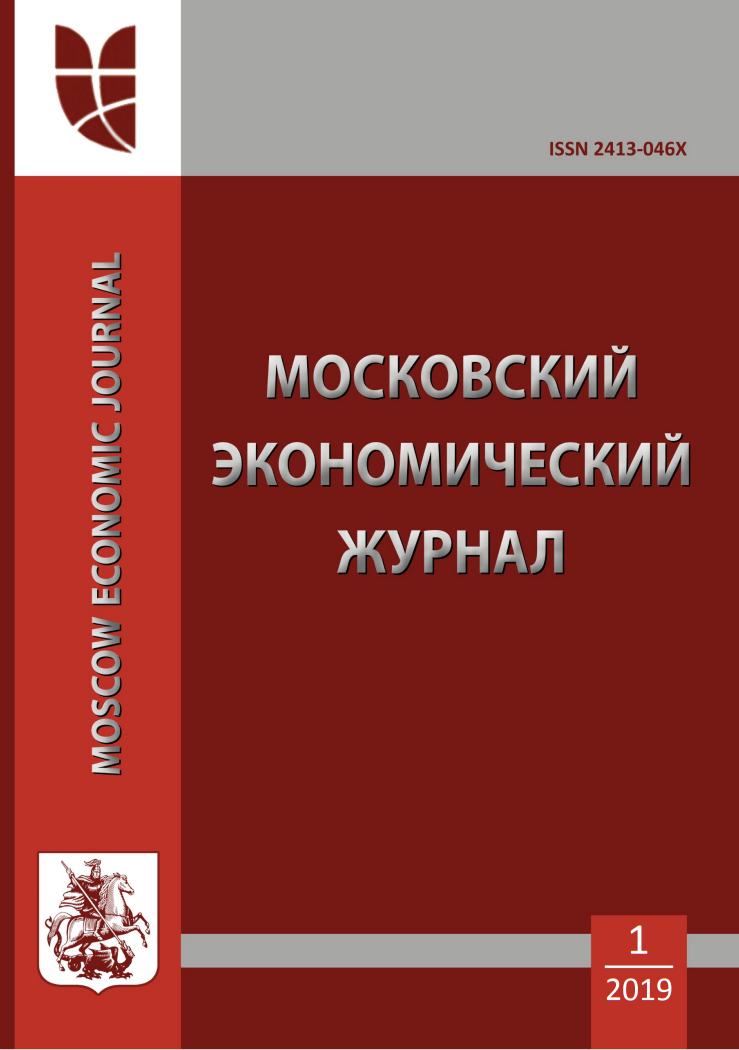Russian Federation
Russian Federation
The article substantiates the leading role of value-oriented concept in socio-economic development. It is shown how the cultural and ideological grounds, embodied in the needs-values, goals and interests of groups of people, affect the development of the human community. The need to change the understanding of the role and importance of the system of values mentioned in the main religious denominations and in the works of philosophers became one of the most acute problems in the XIX century. The natural science foundations of the worldview and the formation of the principles of institutionalization of the value system are substantiated. A comparison is made of the supposed development vectors arising from the ideological position of single-centrism and holism. The single centrist ideological position implies the co-evolutionary development of all fragments of the planetary system and the determination of material needsin quantity and quality.This should be the basis of the norms of human living. It is stated that the principle of reasonable sufficiency in meeting material needs is an important condition for a more complete realization of the spiritual needs of man (and the whole society). This opens the way to the transition from quantitative to the qualitative development of society. It is shown that from the transdisciplinary position of single-centrism, a change in the vector of socio-economic development is possible only with the creation of a “critical mass” of people who perceived this outlook and the value system resulting from it.
worldview, socio-economic relations, interests, value system, spiritual needs, single centrism, holism, transdisciplinary scientific paradigm
1. Berdyaev N. Ekzistencial'naya dialektika bozhestvennogo i chelovecheskogo. Parizh. YMCA-PRESS, 1952. s. 427. Elektronnyy dostup: http://www.magister.msk.ru/library/philos/berdyaev/berdn005.htm
2. V.V. Kazyutinskiy Antropnyy princip // Elektronnaya biblioteka IF RAN / Novaya filosofskaya enciklopediya. Elektronnyy dostup: https://iphlib.ru/greenstone3/library/collection/newphilenc/document/HASH362f209c5da031600b8c36
3. Vernadskiy V.I. Nauchnaya mysl' kak planetnoe yavlenie. M.: Nauka, 1991 g.
4. Zinov'ev A. A. Global'nyy cheloveynik. M.: Algoritm; EKSMO, 2006 g.
5. Kant I. Sochineniya v shesti tomah, T. 6. - M.: Mysl', Filosofskoe nasledie, 1966. - S. 5-23.
6. Kuda idet mir: politicheskaya ekonomiya buduschego / per. s pol. Yu. Chaynikova, M.: Magistr, 2014 g.
7. Moiseev N.N. Koevolyuciya prirody i obschestva. Puti noosferogeneza // Ekologiya i zhizn', № 2-3, 1997 g.
8. Mokiy V.S. Osnovy transdisciplinarnosti. - Nal'chik: GP KBR Respublikanskiy poligrafkombinat im. Revolyucii 1905 goda, 2009. - 368.
9. Novyy zavet Poslanie k Galatam 3:28 - http://bible.by/new-testament/verse/55/03/28 (perevod Ep. Kassiana).
10. Peterburgskiy ekonomicheskiy forum // Gazeta Vedomosti ot 19.06.2010.
11. Plotin. Enneady // per. s grech. yazyka pod red. professora G.V. Malevanskogo i dr. [Elektronnyy resurs]:- http://www.philosophy.ru/library/plotin/01/0.html
12. cit. po stat'e Danilov-Danil'yan V., Reyf I. Za predelami rosta. Komp'yuternaya model', vskolyhnuvshaya mir // Nauka i zhizn'. - 2015. - № 10. - S. 2-15.
13. Chichagov L.M. Chto sluzhit osnovaniem kazhdoy nauki? M., TipolitografiyaKushnera, 1890.
14. Donella H Meadows; Jorgen Randers; Dennis L Meadows; William W Behrens. The Limits to Growth: A Report for the Club of Rome's Project on the Predicament of Mankind. - 1. - Universe Books, 1972. - 211 s. Elektronnyydostup: www.donellameadows.org/wp-content/userfiles/Limits-to-Growth-digital-scan-version.pdf
15. Smuts J.C. Holism And Evolution, NY. Macmillan, 1926.











